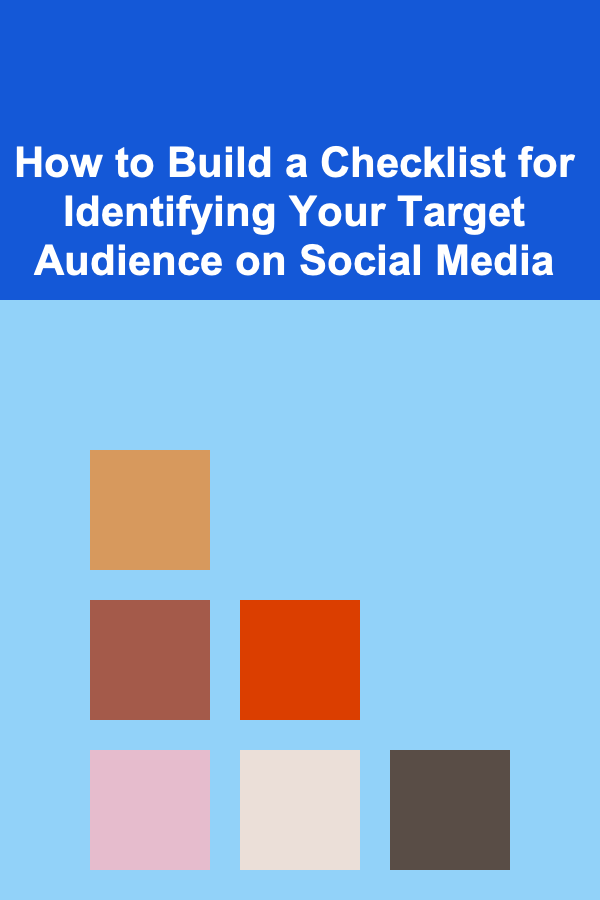
How to Use Job Fairs to Your Advantage
ebook include PDF & Audio bundle (Micro Guide)
$12.99$7.99
Limited Time Offer! Order within the next:

Job fairs are valuable opportunities for job seekers to meet with multiple employers, network with industry professionals, and discover new career opportunities. They are an efficient and effective way to jumpstart your job search or accelerate your progress. However, attending a job fair can be overwhelming if you're not prepared. To make the most of these events, it's essential to plan ahead, know what to expect, and engage with employers strategically.
In this actionable guide, we'll walk through how to use job fairs to your advantage, from preparation to follow-up, and provide tips on how to maximize your chances of securing interviews or even job offers.
Prepare Before the Job Fair
Preparation is key to making a positive impression at a job fair. It's not just about showing up; it's about arriving with a plan that allows you to be strategic and purposeful in your interactions.
Research the Companies Attending
Before attending the job fair, take time to research the companies that will be there. Review their websites, learn about their missions, values, and the types of positions they offer. This will help you identify which companies are a good fit for your skills and interests.
- Company List: Most job fairs provide a list of participating companies ahead of time. Use this list to prioritize your targets and tailor your approach.
- Company Culture: Understand the company culture by reading employee reviews on websites like Glassdoor or Indeed. This will give you an idea of whether you'd be a good cultural fit.
- Job Openings: Check if the company has any job openings that align with your skills. Prepare specific questions about these roles to ask recruiters during the fair.
Polish Your Resume
Your resume is often your first impression at a job fair. Ensure that it is up-to-date, professional, and tailored for the types of positions you're seeking. Here's how you can prepare:
- Targeted Resume: Customize your resume for the specific companies you're interested in. Highlight relevant skills and experiences that align with the job roles.
- Multiple Copies: Bring multiple copies of your resume to distribute at various company booths. Having at least 20-30 copies is a good rule of thumb.
- Digital Copy: Prepare a digital version of your resume on your phone or in the cloud for easy access, in case a recruiter prefers to receive it electronically.
Prepare Your Elevator Pitch
An elevator pitch is a 30-60 second summary of your professional background, skills, and the types of roles you're seeking. It's an essential tool to grab the attention of recruiters and leave a lasting impression. Craft a pitch that highlights:
- Who you are: Your name, your background, and key skills.
- What you're looking for: The type of role you're seeking and the value you can bring to a company.
- Why you're a good fit: A quick example of your qualifications or an achievement relevant to the role.
Dress Professionally
Although job fairs can sometimes have a casual atmosphere, always dress in business or business-casual attire. First impressions matter, and dressing professionally shows that you're serious about finding a job.
- Appropriate Attire: Wear a suit or a professional outfit that is clean, pressed, and well-fitted. Avoid wearing flashy colors or clothing with logos, and ensure that your shoes are polished.
- Comfortable Shoes: Job fairs can involve a lot of walking and standing, so opt for shoes that are comfortable but still professional.
Engage Effectively During the Job Fair
When you're at the job fair, it's time to network, engage with recruiters, and learn more about the companies you're interested in. This is where your preparation pays off.
Approach Recruiters with Confidence
When you approach a recruiter, start with a firm handshake, a smile, and a confident introduction. Use your elevator pitch to give a brief overview of who you are and what you're looking for. Be clear and concise, and express your enthusiasm for the company or role.
- Be Courteous: Respect the recruiter's time and attention. If there's a line, wait patiently.
- Show Enthusiasm: Enthusiasm is contagious. Let the recruiter know why you're excited about the company and the positions they're offering.
Ask Smart Questions
Your questions should reflect your research about the company and demonstrate that you're genuinely interested. Avoid generic questions like "What does your company do?" Instead, ask questions that show you understand the company's mission, values, and needs.
- Example Questions:
- "Can you tell me more about the culture at [Company] and how employees typically collaborate?"
- "What qualities are you looking for in candidates for [specific role]?"
- "How does [Company] support employees in their professional development?"
- "Are there any immediate openings in [department] or plans to hire in the next few months?"
Network with Other Job Seekers
While recruiters are the primary focus, job fairs also present the opportunity to network with other job seekers. Talking to others can give you insights into the current job market, job-seeking strategies, and even potential job leads.
- Share Tips: Swap job-search strategies, advice, or information about companies.
- Exchange Contact Information: Consider exchanging LinkedIn profiles to stay connected for future networking opportunities.
Take Notes
After speaking with each recruiter, take a moment to jot down a few notes about the company, the recruiter, and any follow-up actions you need to take. These notes will be invaluable when following up after the fair.
- Note Details: Write down the job titles discussed, the recruiter's contact information, and anything noteworthy from the conversation.
- Review and Prioritize: After the event, review your notes and prioritize the companies and positions that most interest you.
Follow Up After the Job Fair
Following up after the job fair is crucial in solidifying the connections you made and demonstrating your continued interest. A timely, thoughtful follow-up can set you apart from other candidates.
Send Thank-You Emails
Within 24-48 hours of the job fair, send a personalized thank-you email to each recruiter you spoke with. In your email:
- Express Gratitude: Thank them for their time and the opportunity to speak with them.
- Reiterate Interest: Mention a specific position or aspect of the company you discussed and reiterate your interest in the role.
- Highlight Your Strengths: Briefly remind them of how your skills align with the company's needs and why you're a strong candidate.
Example Thank-You Email:
Subject: Thank You -- [Your Name] -- [Job Title/Company]
Dear [Recruiter's Name],
Thank you for taking the time to speak with me at the [Job Fair Name] today. I really enjoyed learning more about [Company Name] and the exciting opportunities in [specific department or role]. I am very interested in the [specific role] and believe my [mention a relevant skill or experience] would be a great fit for your team.
I look forward to staying in touch and hope to hear from you regarding next steps.
Best regards,
[Your Name]
[Your Contact Information]
Apply Online
Even if you have spoken with a recruiter and expressed interest in a specific position, don't forget to formally apply for the job through the company's online portal. Many companies require this step for their internal processes, even after meeting at a job fair.
- Mention Your Interaction: In your application, mention that you met with the recruiter at the job fair and briefly reference your conversation.
- Tailor Your Application: Ensure that your resume and cover letter align with the role and company's needs.
Keep Track of Your Applications
Stay organized by tracking the companies you've applied to and any responses you've received. You can use a simple spreadsheet or job-search apps to log your applications, follow-ups, and interview schedules.
Maximize Your Networking Potential
Job fairs are not just about finding job opportunities; they're also about expanding your professional network. Building connections at a job fair can lead to valuable contacts that help you down the line.
Collect Business Cards and Connect on LinkedIn
Always ask for business cards from recruiters and other professionals you meet at the event. This will allow you to follow up more easily. If you're not able to collect a card, ask for their name and email address so you can reach out.
- LinkedIn Connections: After the fair, connect with recruiters and other attendees on LinkedIn. Include a personalized message mentioning your conversation at the job fair.
Attend Multiple Job Fairs
Don't limit yourself to just one event. Job fairs are held regularly, and attending multiple events will give you access to a wider variety of companies and positions. Each job fair is an opportunity to refine your pitch, improve your networking skills, and learn more about what employers are looking for.
Conclusion
Job fairs offer a wealth of opportunities, but only if you approach them strategically. By preparing ahead of time, engaging effectively with recruiters, following up diligently, and leveraging your network, you can significantly increase your chances of finding a job that suits your skills and aspirations.
Remember that job fairs are as much about making connections and building relationships as they are about securing a job. With the right mindset and preparation, you can use these events to your advantage and take an important step toward your next career move.

How to Build a Checklist for Identifying Your Target Audience on Social Media
Read More
How to Create a Quick and Easy Updo
Read More
How to Stage Your Home's Windows for Maximum Appeal
Read More
How to Understand the Potential of Microbiome Therapies
Read More
Mastering Business Development: Strategies and Tactics for a Successful Career as a Business Development Executive
Read More
Understanding Grid Movement Board Games
Read MoreOther Products

How to Build a Checklist for Identifying Your Target Audience on Social Media
Read More
How to Create a Quick and Easy Updo
Read More
How to Stage Your Home's Windows for Maximum Appeal
Read More
How to Understand the Potential of Microbiome Therapies
Read More
Mastering Business Development: Strategies and Tactics for a Successful Career as a Business Development Executive
Read More